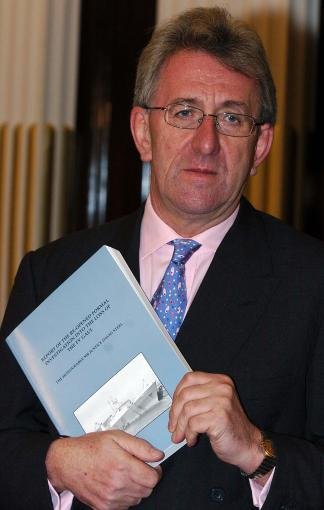A section of the International Legal Forum in St. Petersburg was dedicated to fighting corruption. After its work was over, one of the speakers, Mr David Steel, justice of the London's High Court, explained to Vladimir Novikov, the Russian Legal Information Agency (RAPSI) observer, the UK’s specific plans for fighting corruption from July 1.
RAPSI: First of all, what do you expect to see on the 1st of July right after the act enters into force?
J: I should explain that I’m not a criminal judge, I don’t do criminal cases and so it’s most unlikely that I would be directly involved in any prosecution under the Bribery Act. If you want my “guess” I do not think there will be a sudden explosion of cases alleging corruption. There is already substantial international legislation against corruption so another Act won’t change anything drastically.
It makes some of the offences much clearer and it adds two offences: bribery of a foreign public official and corporate responsibility for bribing by a company employee.
I think the immediate reaction to the Act will be moderate and large companies will establish a system of supervision within organizations to try and prevent any possibility of bribery.
RAPSI: Some lawyers say that as soon as this Act comes into force British companies will suffer because they will find it difficult, if not impossible, to work with their Russian partners, for instance, some of those companies that may be involved in some “shady deals”. Investments may go down both in Russia and UK. What do you think about this?
J: I’m not a member of a corporation, I’m not a minister, I’m not even a practicing lawyer in the field we’re talking about. I am a judge. I don’t think it’s a great move for a judge to comment on that.
But still companies are saying that they will find it difficult to compete against companies that pay bribes, and companies do pay bribes.
The expectation of the British government is that many countries will follow the line of the Bribery Act. That may be ambitious but it is said that those companies which have suppressed any risk of their employees, or agents, paying bribes haven’t lost their business. They rather quickly got the feeling that their business is prospering because they sell really good products instead of paying bribes.
RAPSI: What Russia needs to do, from your point of view, in order to change the image it has today – the image of the country with a susceptible corruption as system?
J: I couldn’t possibly advise Russia what to do about the extent to which corruption is present in this country. As this meeting has emphasized, the crucial ambition must be to establish the rule of law in Russia. And another crucial ingredient of that fight is to ensure that public officials are given status, are given proper remuneration and are given a significant degree of prolonged employment. I think one of the great difficulties that can arise is they don’t have sufficient length of service. They’re only there for three years, four years. When people comprehend they are only hired for a short time they start taking bribes. I would recommend that’s changed.



